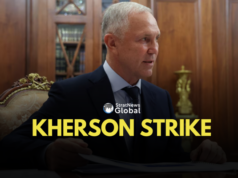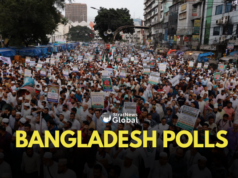Chinese politics has witnessed political turbulence, personality changes and abrupt U-turns in policy. This in turn has influenced Chinese media, with editors driven by the need to remain in lock-step with the thinking of the Communist Party.
Something of that kind happened the other day when the Global Times, which often acts as the gadfly of the Beijing political establishment when they want to hit out at foreign governments and players, suddenly removed an article from their site in less than 12 hours titled ‘India’s diplomacy has a S Jaishankar problem’.
Written by international affairs columnist Wang Daming, the article faulted Jaishankar for what it termed “shocking remarks”.
It quoted him as saying at the World Leaders Forum hosted by the Economic Times last month, that “India has a China problem … a special China problem that is over and above the world’s general China problem.”
The gravamen of Jaishankar’s charge, the article claims, is that China is a “bad guy”, it has created a “China problem” for all countries and India’s China problem is no exception. Consequently, India has adopted a series of anti-China policies such as “de-coupling” in recent years.
The article then went on to accuse Jaishankar of ulterior motives, that he was driven by “complex feelings of envy, jealousy and hate” towards China, and that he was trying to portray China as an “alien” in the international community and to foster an “anti-China alliance” by advocating the “China threat theory.”
It questioned the timing of Jaishankar’s remarks shortly after the Aug 29th meeting of the border affairs mechanism, alluding to a split in the Modi government.
“One powerful section of the Modi government,” it said quoting analyst Pravin Sawhney, “opines that ties with China should be normalised. Another powerful section led by Jaishankar believes that normalisation of ties with China would jeopardize India’s ties with the US, which is unacceptable. The prime minister is undecided since he wants to have his cake and eat it too.”
The article claims that Jaishankar’s diplomatic strategy is “full of tricks”, lacking the “moral sense of Nehru’ s diplomacy”, even accusing him of using the country for political gain.
Then suddenly, without any explanation, the article vanished from the internet. The sense is that somebody in Beijing saw no purpose in putting out an article so critical of Jaishankar when a high-profile BRICS summit is due. India’s National Security Adviser Ajit Doval and senior Chinese leader Wang Yi are likely to have a one-on-one meeting in St Petersburg where the NSAs of all BRICS countries are meeting this week.
But it is a pointer to how Beijing sees Jaishankar, as somebody who has helped fuel anti-China sentiment. In their eyes, Jaishankar is no friend.
Perhaps they forgot that diplomacy is all about interests, friendships wax and wane as interests evolve and change. Jaishankar is batting for India and will use every trick in the book to defend and promote those interests, as Indian analysts have noted.
Thirty eight years in journalism, widely travelled, history buff with a preference for Old Monk Rum. Current interest/focus spans China, Technology and Trade. Recent reads: Steven Colls Directorate S and Alexander Frater's Chasing the Monsoon. Netflix/Prime video junkie. Loves animal videos on Facebook. Reluctant tweeter.




